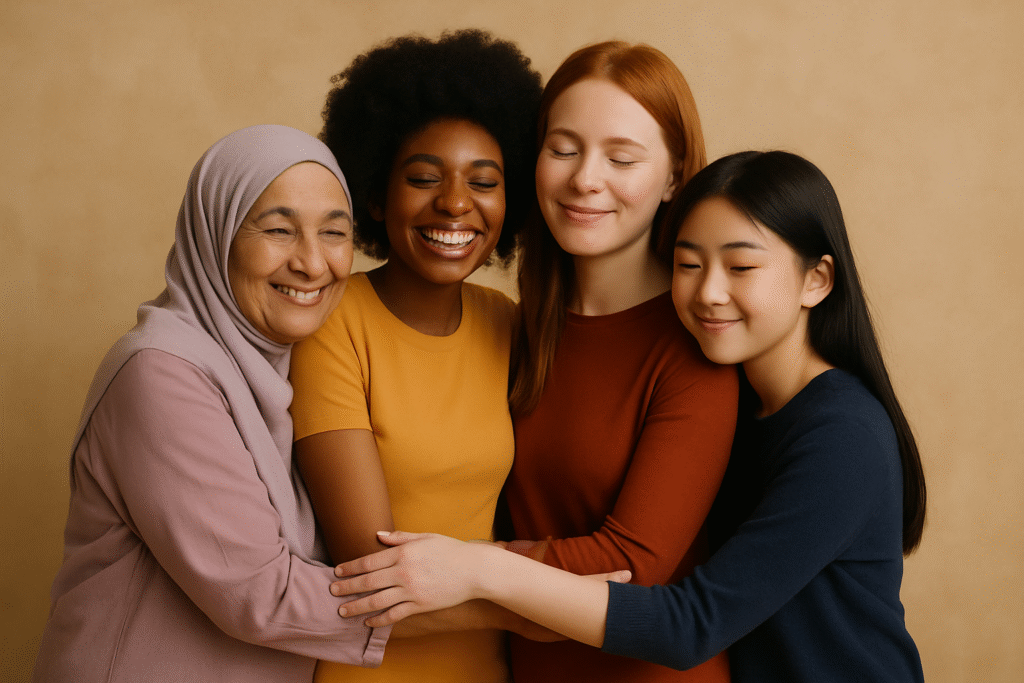By Sameer Ahmad
Women are the soul of civilization—their strength often quiet, their contributions frequently unsung, yet their impact undeniable. They are not only the nurturers of life but the architects of communities and the unseen force behind countless triumphs in human history. In every society and across every era, the essence of womanhood has remained a source of strength, wisdom, and transformation.
Allama Iqbal, the philosopher-poet of the East, encapsulated this in his stirring verses on the feminine spirit. His poetry speaks not merely of women as mothers or muses, but as forces of creativity, intellect, and enduring dignity.
“Wujood-e-zan se hai tasveer-e-kainaat mein rang…”
The existence of a woman adds color to the canvas of the universe.
She is akin to a melody whose tunes infuse inner warmth into life.
Though made from dust, she surpasses the stars in honor,
For every grace and nobility lies hidden within her essence.
Though she did not write Plato’s Dialogues,
It was her spark that kindled the genius of Plato.
These lines are more than poetic praise—they are a call to recognize the central, life-giving force of women. Though their hands may not always pen philosophy or lead empires, their influence is embedded in every sphere of life. A mother’s nurturing presence, a wife’s steadfast support, a daughter’s joyful spirit—all contribute to the mosaic of human harmony.
But true empowerment, as Iqbal emphasized, is not in blind imitation of others but in rooted self-realization. For Muslim women, empowerment flows not from detachment from faith but through a deep embrace of its values. Islam, in its essence, does not inhibit potential but channels it in a direction that preserves both dignity and societal balance. Its guidance addresses not only the spiritual and moral dimensions of life but also the biological, emotional, and psychological layers that modern science is only beginning to understand.
One such example is the Islamic injunction regarding the waiting period (iddah) following divorce or the death of a husband. To many, this might appear as a mere traditional regulation—but a deeper look reveals a profound layer of biological and psychological wisdom. A remarkable incident highlighting this was the case of a Jewish embryologist and theologian who embraced Islam after uncovering the scientific significance behind the Qur’anic command in Surah Al-Baqarah (2:228), which states:
“And divorced women shall wait [as regards their marriage] for three menstrual cycles.”
This directive, divinely mandated, is far more than a symbolic pause. Scientific research into human reproduction and genetics has shown that during sexual relations, a woman’s body absorbs proteins and fragments of DNA from her male partner. This genetic material can linger in her bloodstream and tissues long after intimacy ends. If a woman were to enter another relationship too soon, especially within the biological retention window, it could lead to a complex interplay of foreign genetic material. The resulting biological conflict can increase the risk of infections, disrupt reproductive health, and complicate future pregnancies.
What science now affirms is that the waiting period in Islam allows for a near-complete cleansing of the previous partner’s genetic material. Studies have found that after the first menstrual cycle, approximately one-third of the retained DNA is removed. By the second cycle, more than two-thirds is cleared. And after the third, a staggering 99.9% of the genetic remnants are expelled, making the body biologically prepared for a new marital bond. It is a testament to the alignment between divine command and natural processes.
This discovery led the scientist to reevaluate the role of faith in scientific insight. In a dramatic moment of personal reckoning, he tested his own wife’s DNA profile, only to discover genetic traces from three different men—an unambiguous revelation of infidelity. The emotional upheaval this caused also opened a gateway to deeper understanding. He began studying Islamic principles more earnestly and soon embraced Islam, convinced of its unmatched foresight in safeguarding the sanctity of relationships.
Additional research from the United States compared the biological effects of monogamous versus polyamorous relationships on women. Among African Muslim women, who traditionally maintain exclusive marital bonds, researchers found genetic material in their children that matched a single partner. In contrast, DNA samples from non-Muslim women with multiple partners often displayed traces from more than one male source. This raised not only health concerns but pointed toward broader societal implications—emotional instability, broken trust, and an erosion of family values.

Even in the case of widowhood, Islamic law demonstrates emotional intelligence and biological awareness. The Qur’an prescribes a longer waiting period—four months and ten days—after the death of a spouse. This is not only to confirm the absence of pregnancy but to allow the woman’s body and mind time to process grief. Bereavement can affect hormonal cycles, immunity, and overall well-being. The additional period helps ensure that the woman heals not only physically but also emotionally before starting anew.
Thus, the Islamic principle of one marriage at a time for women is not a limitation but a protection—an ethical safeguard rooted in biology, psychology, and spirituality. It shields women from potential harm, fosters clarity and trust within families, and upholds the integrity of intimate relationships. Far from being a dated prescription, it is a forward-looking, scientifically validated practice that underlines Islam’s commitment to human well-being.
As science continues to uncover the intricate ways in which our bodies function, it increasingly validates what the Qur’an laid down centuries ago. The convergence of empirical discovery with divine guidance is no coincidence—it is a reflection of the Creator’s perfect design. The divine principles that may once have seemed abstract or rigid now emerge as blueprints for a healthier, more harmonious society.
In this light, womanhood must not be viewed through the narrow prism of modern debates alone. A woman’s identity is more than her profession, attire, or social status. Her strength lies in her capacity to nurture, to inspire, and to hold the fabric of society together. Islam does not ask her to sacrifice her aspirations—it simply offers her a compass that safeguards her dignity, honors her essence, and elevates her contributions.
Let us, then, celebrate women not merely with words but with reverence. Let us build a world where they are honored not for imitating men, but for being proud custodians of their unique role—where faith is not seen as a restraint but as a liberating framework for true empowerment.
Iqbal’s verses remain a timeless reminder: the soul of civilization rests in the grace, resilience, and dignity of women. And in that spirit, every woman becomes a bearer of legacy—a spark that ignites not just families, but the brilliance of entire civilizations.
